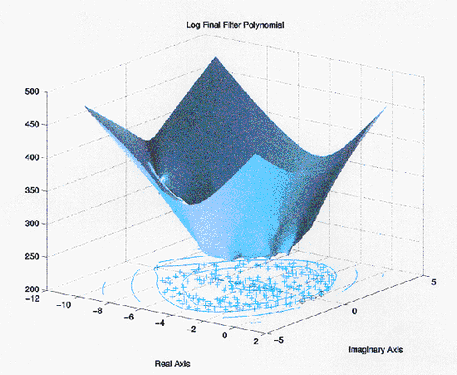/EIG
Block Format Keyword Defines the eigen modes and static modes computation for flexible bodies.
Format
| (1) | (2) | (3) | (4) | (5) | (6) | (7) | (8) | (9) | (10) |
|---|---|---|---|---|---|---|---|---|---|
| /EIG/eig_ID/unit_ID | |||||||||
| eig_title | |||||||||
| grnd_ID | grnd_bc | Trarot | Ifile | ||||||
| Nmod | Inorm | Cutfreq | Freqmin | ||||||
| Nbloc | Incv | Niter | Ipri | Tol | |||||
| Filename | |||||||||
Definitions
| Field | Contents | SI Unit Example |
|---|---|---|
| eig_ID | Mode
identifier. (Integer, maximum 10 digits) |
|
| unit_ID | Unit Identifier. (Integer, maximum 10 digits) |
|
| eig_title | Mode title. (Character, maximum 100 characters) |
|
| grnd_ID | Node group to which the
modes will be computed.
(Integer) |
|
| grnd_bc | Node group to which
specific eigen modes are applied. 3
(Integer) |
|
| Trarot | Codes for translations and
rotations. (6 Booleans) |
|
| Ifile | Additional modes file
flag. 5 (Integer) |
|
| Nmod | Maximum number of modes to
be computed. Default = 100 (Integer) |
|
| Inorm | Eigenvector normalization
method flag.
(Integer) |
|
| Cutfreq | Maximum eigen frequency.
(Real) |
|
| Freqmin | Minimum eigen frequency.
7
Default = 0.001 Hz (Real) |
|
| Nbloc | Number of eigen modes per
block. 9
(Integer) |
|
| Incv | Factor to obtain the
number of Lanczos basis vectors to use throughout the computation.
10 Default = 2 (Integer) |
|
| Niter | Maximum number of Arnoldi
iterations. Default = 300 (Integer) |
|
| Ipri | Printout level for
ARPACK. Default = 0 (Integer) |
|
| Tol | Relative accuracy to which
eigen values are to be computed.
Default = 0.0 (Real) |
|
| Filename | Additional modes file
name. (Character, maximum 100 characters) |
Comments
- This functionality is implemented for the purpose of the generation of flexible bodies. For detailed normal modes analysis of a model the use of the Bulk Data Format is strongly recommended.
- The use of the implicit option /IMPL/LINEAR in the Radioss Engine is required to compute normal modes.
- Boundary condition corresponding to the
codes for translations and rotations are added to these nodes for the computation of
eigen modes. Static modes, one for each additional blocked DOF, are computed.
A static mode corresponds to the static response of the structure, all DOF of the set of interface nodes concerned by additional boundary conditions being blocked; except one taking the one value.
- The codes for translations and rotations follow the same rule as for the /BCS option.
- If Ifile ≠ 0: An
additional file is provided containing pre-computed modes from a normal modes
analysis, either experimental or numerical. These modes are used to reduce the
dimension of the space in which eigenvalues are sought and thus enhance
efficiency.
If Ifile = 1, the additional file is given in a format defined in External Modes File.
- Multi-level condensation is no longer supported.
- The default (if set blank or zero) for Freqmin is 0.001 Hz. If a value other than zero is entered, that value defines a frequency in the unit system set for /EIG. The capability of computing rigid body modes is not fully implemented. It is recommended to either sufficiently constrain the model or to select a value for Freqmin that is high enough to eliminate all rigid body modes.
- Eigen modes are computed using ARPACK
software (R. Lehoucq, K. Maschhoff, D. Sorensen, C. Yang).

Figure 1. - Better precision is achieved when only a small number of eigen modes are computed simultaneously.
- The number of Lanczos basis vectors to use
through the course of the computation is given from the number of required
eigenvalues per block (or total if Nbloc = 0) by
the formula:
NLanczos vectors = Nrequired eigenvalues * Incv.
- For the post-processing of modes shapes in HyperView, Radioss Starter input file (*000.rad) should be chosen in the Load Model panel and the first output animation file (*A001 which contains the first mode) in the Load Result panel.